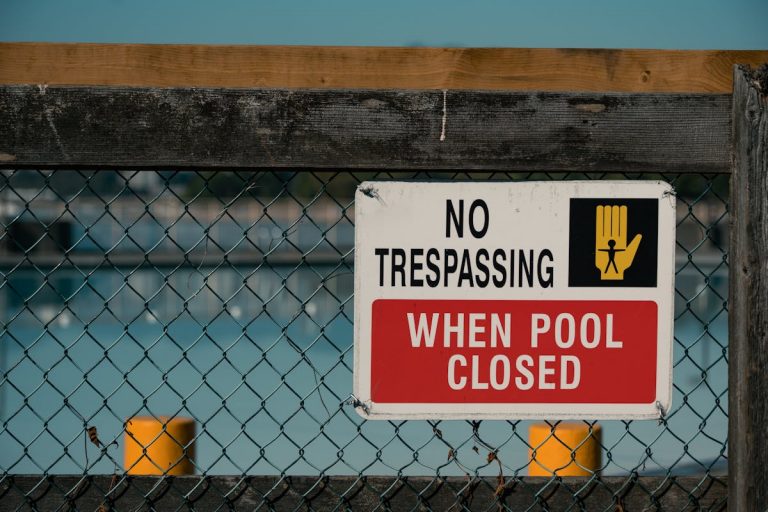In the state of Arizona, the act of resisting arrest is defined and penalized under Arizona Revised Statutes § 13-2508. This statute categorizes resistance into active and passive forms, both of which are subject to legal repercussions. The range of activities construed as resistance is broad, including physical obstruction, evasion, or even verbal non-compliance. The potential implications of these charges are significant, posing questions about the balance between individual rights and law enforcement responsibilities. As we investigate this topic, it’s important to evaluate how these laws affect various stakeholders in our society.
Understanding Resisting Arrest
Resisting arrest, a term often heard but not always fully understood, refers to an act of opposition towards law enforcement during the execution of their duties. It behooves us to appreciate that this opposition is not limited to physical resistance but extends to verbal refusal or evasion of lawful commands. A deeper comprehension of arrest procedures and legal rights is essential to avoid the complexities associated with charges of resisting arrest.
Arrest procedures require law enforcement officers to approach potentially volatile situations with caution, ensuring the safety of all parties involved. In these scenarios, the individual’s compliance plays a significant role in the seamless execution of the procedure. Consequently, any act of resistance can disrupt the process, endanger lives, and lead to additional charges.
Meanwhile, understanding your legal rights is important. While the law allows you to question the reason for your arrest, it does not permit resistance, whether physical or verbal. Your right to remain silent, to an attorney, and to a fair trial remain intact. Knowledge and respect for these rights can prevent unnecessary confrontations, legal complications, and foster a healthier relationship between citizens and law enforcement.
Legal Definition in Arizona
In the state of Arizona, the legal definition of resisting arrest is precisely delineated by statute. The legal terminology used to describe this offense is found in Arizona Revised Statutes § 13-2508. According to the law, a person commits resisting arrest by intentionally preventing or attempting to prevent a person, reasonably identifiable as a law enforcement officer, from effecting an arrest.
Understanding this legal terminology is pivotal in comprehending arrest procedures and the consequences of resistance. The law doesn’t merely cover physical resistance, but extends to passive resistance, such as failing to follow lawful instructions during the arrest procedures. The statute emphasizes that the resistance must be intentional and that the person resisting must be aware that the individual attempting to make the arrest is a law enforcement officer.
The legal definition is broad yet precise, covering a variety of actions that may hinder the arrest process. This law serves as a protective measure for law enforcement officers, ensuring that they can carry out their duties effectively without unnecessary hindrance or obstruction. In Arizona, the law has zero tolerance for any form of resistance during the arrest procedures, intentional or otherwise.
Types of Resisting Arrest
Building upon our understanding of the legal definition, it is crucial to mention the various forms that resisting arrest may take. In Arizona, the law broadly categorizes these forms into two: passive and active resistance.
Passive resistance is usually non-violent and involves tactics such as verbal defiance or refusal to cooperate. A person may express their non-compliance verbally, refusing to follow the officer’s orders, or challenging their authority. This form of resistance is often subtle, but it still hinders the law enforcement process, and as a result, it is legally punishable.
Active resistance, on the other hand, involves deliberate actions meant to obstruct the arresting officer. This could include running away, hiding, or using obstruction tactics such as barricading oneself. It is a more overt form of resistance and is generally considered more serious by the courts.
However, it is essential to recognize that the above are broad categorizations and specific cases may involve elements of both. Arizona law takes an all-encompassing view of these actions, and the penalties can vary depending on the severity and nature of the resistance. Understanding these types of resistance can help individuals navigate potential legal situations more effectively and minimize potential consequences.
Physical vs. Non-Physical Resistance
In Arizona, the law distinctly differentiates between physical and non-physical resistance during an arrest. It is key to comprehend the exact parameters of physical resistance and the specific definition of non-physical resistance, as both carry distinct legal consequences. Let’s explore these two categories, their unique implications, and the subsequent potential legal ramifications.
Understanding Physical Resistance
While it may seem straightforward, distinguishing between physical and non-physical resistance in the context of resisting arrest, as defined by Arizona law, can be more complex than anticipated. Physical resistance is typically characterized by an individual using force or engaging in activities that prevent or obstruct law enforcement from carrying out a lawful arrest.
This can include a variety of aggressive actions such as pushing, hitting, running away, or even passive resistance like limp body tactics. The intention behind these actions is to impede the arrest process, making it essential for law enforcement to employ effective tactics for compliance.
Psychological factors also play a significant role in physical resistance. Fear, anxiety, or anger can trigger a fight-or-flight response, leading to physical acts of resistance. Understanding these factors can aid in deescalating situations, reducing the risk of harm to all parties involved.
In the state of Arizona, physical resistance against arrest can lead to charges of aggravated assault on a police officer, a felony with severe penalties. As a result, it is imperative for individuals to be aware of their actions during an arrest scenario to avoid escalating the situation unintentionally.
Defining Non-Physical Resistance
Steering through the nuances of non-physical resistance can be challenging, yet it is essential to understand this aspect of Arizona’s laws on resisting arrest. Non-physical resistance is generally identified through actions that do not involve direct physical confrontation. Verbal defiance and psychological tactics are key elements in such scenarios.
Verbal defiance, one of the hallmarks of non-physical resistance, encompasses actions such as refusing to follow police orders or engaging in provocative speech. It’s important to understand that while freedom of speech is constitutionally protected, deliberately inciting resistance or hostility towards law enforcement crosses the line into illegal territory.
Psychological tactics, on the other hand, refer to actions designed to manipulate or intimidate law enforcement officers, such as giving false information or feigning illness. These tactics can be subtle and are often employed to evade arrest or delay the enforcement of the law.

Legal Consequences Involved
Moving from the definition to the implications of resisting arrest, it is important to comprehend the legal consequences associated with both physical and non-physical resistance. Arizona law does not differentiate between these two types of resistance when it comes to criminal penalties. Whether you resist arrest physically, by using force or violence, or non-physically, by simply refusing to comply with the officer’s commands, you’re subject to charges of resisting arrest.
The exact penalties can vary, influenced by factors such as the nature of the arrest scenarios and the degree of resistance. Generally, a charge of resisting arrest in Arizona is considered a Class 6 felony, carrying potential penalties of up to 18 months in prison, a maximum fine of $150,000, and a presumptive probation period.
It’s essential to note that any action perceived as resistance, even if unintentional, can lead to charges. Hence, understanding the law and cooperating during an arrest scenario is key to avoiding such criminal penalties. To safeguard your rights, consult with a legal professional if you find yourself in such a situation.
Potential Legal Consequences
The potential legal consequences of resisting arrest in Arizona are noteworthy and can drastically impact an individual’s life. A conviction for this charge can lead to a range of penalties, from fines to imprisonment, depending on the circumstances surrounding the incident.
Resisting arrest is considered a serious misdemeanor under Arizona law, carrying hefty legal ramifications. The accused could face penalties such as jail time, probation, community service, and substantial fines. More severely, if the resistance involved physical force or the threat of force, Arizona law classifies it as a felony offense. This escalates the potential consequences, including a longer term of imprisonment and higher fines.
Furthermore, the arrest procedures in Arizona require officers to document every act of resistance. This documentation can greatly influence the court’s perception of the incident, contributing to the severity of the penalties.
Moreover, a conviction for resisting arrest can leave a lasting mark on an individual’s criminal record, affecting future employment prospects, housing applications, and other important areas of life. As a result, understanding these legal consequences is vital for anyone facing a charge of resisting arrest in Arizona.
Defenses Against This Charge
Understanding the potential repercussions of a charge for resisting arrest in Arizona naturally leads us to explore available defenses against this charge. In the legal landscape of Arizona, a robust defense strategy is paramount to mitigating the impact of such charges, and may hinge on two main aspects: self defense argument and officer conduct.
If an individual can prove they were protecting themselves in a situation where the officer used excessive or unnecessary force, then the self defense argument can be used. This defense is highly dependent on the circumstances surrounding the arrest and requires substantial evidence to support the claim of excessive force.
Equally significant is the officer conduct during the arrest. In Arizona, an arrest must be executed lawfully for the charge of resisting arrest to stand. If the officer involved acted out of his or her jurisdiction, or if an arrest was attempted without a valid warrant where one was required, these could serve as strong defenses.
Navigating these defenses can be complex and should be undertaken with the guidance of an experienced attorney. The right legal strategy can greatly affect the outcome of the case and potentially lead to the charge being reduced or dismissed.
Real-Life Case Studies
Understanding the practical implications of Arizona’s resisting arrest laws can be best achieved through analyzing real-life case studies. Through a thorough review of notable Arizona cases, we can explore how the law defines “resisting arrest” and the legal consequences that ensue. This examination will provide a precise, real-world context to the abstract legal definitions and potential defenses previously discussed.
Defining “Resisting Arrest”
Delving into real-life scenarios elucidates the nuances of Arizona’s law on “Resisting Arrest”. In Arizona, this statute is broadly defined to incorporate multiple behaviors that intentionally hinder police authority during the execution of their duties.
It’s not merely physical resistance that constitutes an offense. Any act of non-compliance that disrupts arrest protocols can be interpreted as resisting arrest. For instance, if an individual deliberately gives false information to a law enforcement officer during an arrest or runs away from an arresting officer, these actions are deemed as resisting arrest.
Furthermore, the law encompasses not just actions against officers but also those against anyone assisting them. This includes firefighters, prosecutors, judges, or any public servant executing their official duties.
Understanding the extensive scope of this law, it becomes evident that Arizona has taken a comprehensive approach to safeguard the authority of its law enforcement and public servants. The breadth of the term “Resisting Arrest” underscores the commitment to maintaining law and order and the respect for the rule of law in the state. Hence, citizens must be aware of their responsibilities and the potential consequences of non-compliance during an arrest.
Notable Arizona Cases
Reflecting on specific instances provides a more concrete perspective on how Arizona’s “Resisting Arrest” law operates in practice. Notable Arizona cases offer a rich source of case analysis, shedding light on legal precedents and the diverse set of circumstances under which the law can be applied.
One such case is the 1999 State v. Henry, which reinforces the legal precedent that passive resistance, such as going limp when arrested, does not constitute “resisting arrest” under Arizona law. The court ruled that the defendant’s non-violent, non-aggressive conduct did not meet the statute’s requirements.
Yet, in State v. Corrales (2009), the court took a different stance. The defendant’s actions, which included refusing to obey commands and physically pulling away from officers, were deemed as resisting arrest. This case analysis shows that active resistance, even without violence, can meet the statutory definition.
These cases illustrate the nuanced application of Arizona’s “Resisting Arrest” law. As the legal landscape evolves, these precedents continue to guide law enforcement and judicial decisions, ensuring the law is consistently applied and the rights of individuals are respected.
Legal Consequences Explored
Maneuvering the labyrinth of legal consequences that stem from resisting arrest in Arizona requires an in-depth examination of real-life case studies. One such case involves a Phoenix resident who, unaware of the legal implications, resisted arrest by attempting to flee the scene. Subsequently, he faced not only charges for the original offense but also a separate count for resisting arrest.
This example highlights the significance of understanding arrest procedures in Arizona. The state’s legislation views any act of resistance, whether physical or otherwise, as a criminal offense. Consequently, the penalties can range from fines to imprisonment, contingent upon the severity of the resistance and any prior criminal record.
Furthermore, the legal implications extend beyond immediate punishments. A conviction for resisting arrest can greatly impact one’s life, potentially hindering employment opportunities, creating hurdles in securing housing, and even affecting child custody battles. It is vital, thus, to comprehend the gravity of resisting arrest, as the repercussions extend far beyond immediate legal penalties.
Frequently Asked Questions
Is Resisting Arrest Considered a Felony or Misdemeanor in Arizona?
In Arizona, resisting arrest can be classified as either a misdemeanor or felony, depending on the severity of the resistance. The legal consequences vary, reflecting the seriousness of interrupting law enforcement’s arrest procedures.
What Are Common Examples of Non-Physical Resistance to Arrest?
Non-physical resistance to arrest often encompasses actions like verbal defiance or passive resistance. Examples include refusing to follow an officer’s commands, giving false information, or deliberately going limp when an officer attempts handcuffing.
How Does Arizona Law Differentiate Between Types of Resisting Arrest?
Arizona law differentiates resisting arrest into two types: physical and non-physical. Physical resistance involves using force or threat, while non-physical resistance refers to actions like fleeing or giving false information. Each carries its own legal implications.
What Potential Defenses Can Be Used Against a Resisting Arrest Charge in Arizona?
In Arizona, defense strategies against a resisting arrest charge can include demonstrating lack of physical force or threat, unlawful arrest, or police misconduct. Relevant legal precedents may also provide a strong basis for defense.
Can You Provide Examples of Real-Life Cases Involving Resisting Arrest in Arizona?
Certainly, case studies and legal precedents abound. However, due to respect for privacy and confidentiality, specific real-life examples of cases involving resisting arrest in Arizona cannot be provided here.





